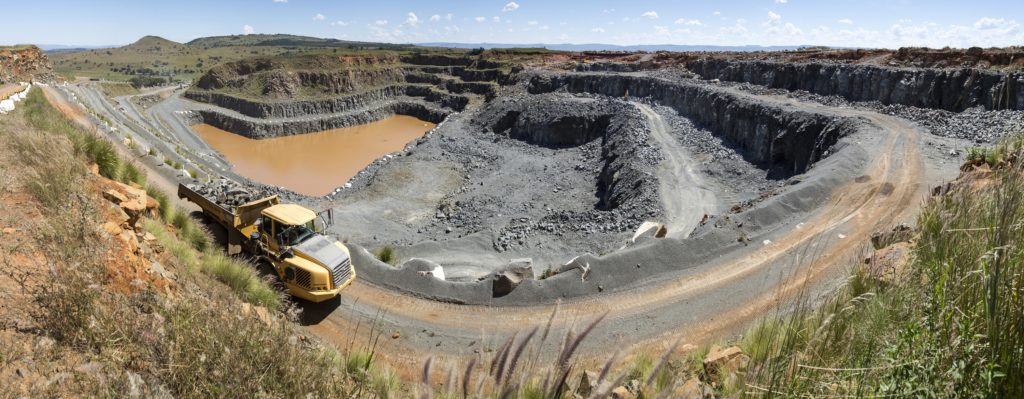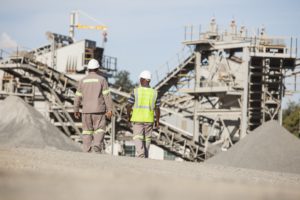All too often, the quality of aggregate is overlooked in favour of price – a choice that can cost the engineer, contractor and end-user dearly in the long run.
Quality and consistency of aggregate will make or break a project’s success – be it in roadbuilding, readymix, concrete product manufacture or asphalt,” says Amit Dawneerangen, GM: Sales and Product Technical at AfriSam. The construction materials leader highlights the extraordinary lengths that are necessary to ensure that aggregate delivers a long-term return on investment. “This includes standard quality control testing on-site at each of our operations,” says Dawneerangen. “Our laboratory staff conduct tests on product as it is produced and stockpiled. The product is given the green light for dispatch only after being subjected to a grading analysis and flakiness index, as well as calculations to determine the fineness and grading modulus.”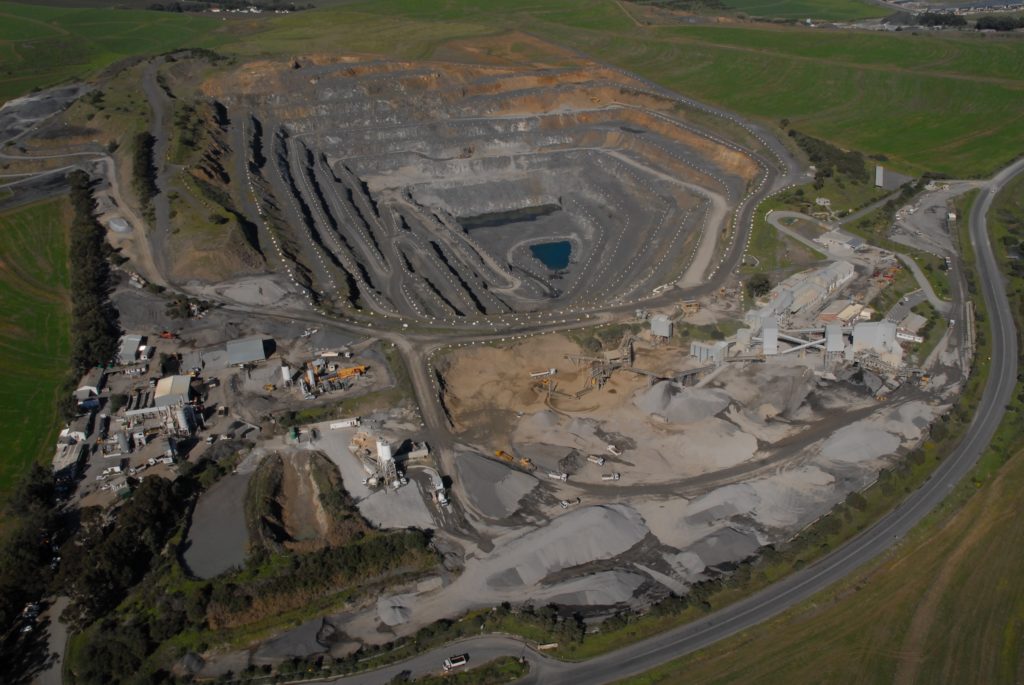
Bedrock of planning, compliance
The foundation for AfriSam’s sustainability, reliability and product quality is rooted in decades of good planning and regulatory compliance, says Glenn Johnson, GM: Construction Materials & Aggregates Operations at AfriSam. “A reliable and consistent aggregate value chain begins many years before any stone is actually delivered,” says Johnson. “Extensive research and planning goes into finding, licensing and establishing a quarry with suitable geology and mineralogy, which is close enough to current and future markets.” These mineral deposits must be registered with the Department of Mineral Resources and Energy, and must remain compliant with a range of demanding regulations. Without the careful selection of the correct type of deposit, he emphasises, it is impossible to produce the quality of material demanded by the various users of construction materials.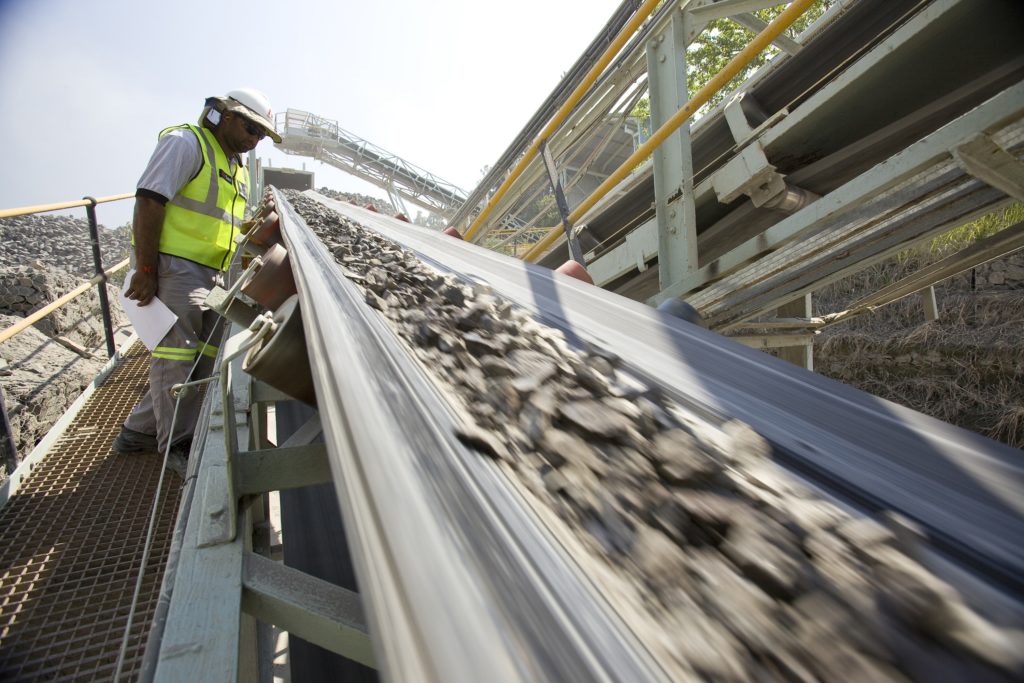
Managing quarry reserves
Reserve management is therefore a critical element of AfriSam’s sustainability to ensure that there are adequate reserves of quality products – in close proximity to where they are required by the market. The amount of preparation, discussion and planning that goes on behind the scenes is extensive, he notes.“Cheaper products are often available through producers working a temporary borrow pit or unregulated deposits, but this is where quality can be compromised,” he says. “The danger is that substandard aggregate finds its way into infrastructure and buildings.”
This, in turn, affects long-term value for money as structures may not last as long as expected – placing an added financial burden on the end-client or the contractor for unexpected maintenance and repairs. In a worst-case scenario, structures could even begin to fail during or soon after construction, putting lives at risk.Sticking to standards
The application of compulsory standards in construction therefore remains a cornerstone of building the country’s infrastructure, emphasises Shaughn Smit, regional sales manager, AfriSam. In roadbuilding and bridge building, for instance, consulting engineers must base their proposed designs on the standard specifications of the Committee of Transport Officials (COTO). There are also South African National Standards (SANS) relevant to various construction materials in different applications. “These standards highlight the need for quality in all aspects of the value chain, and aggregate is a fundamental ingredient in this chain,” says Smit. “On the strength of AfriSam’s national footprint of quarries and aggregate operations – guided by our quality systems – we are well placed to provide the full range of contractors’ requirements.”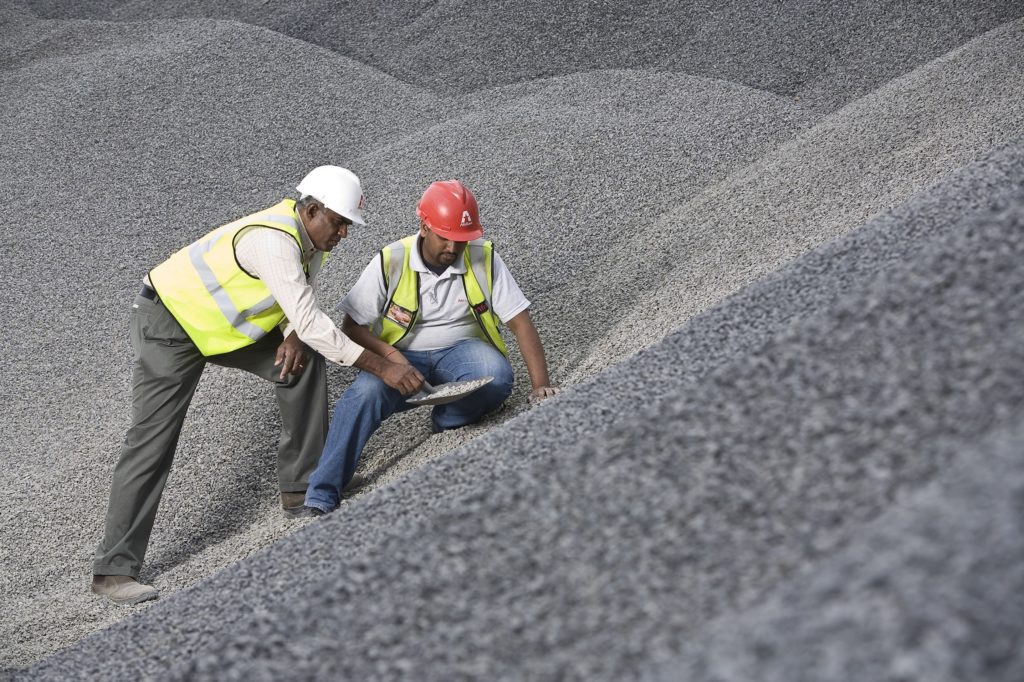
Sharing insights
AfriSam’s experience and knowledge in the field of aggregates have allowed it to share valuable insights with project designers and consulting engineers. Dawneerangen highlights the relationships the company has built with these professionals over the years and how this translates into quality solutions, especially for large and complex projects. “Through these engagements, we are able to raise awareness about how our products and their applications are evolving, for better results,” he says. “In addition to talking about the latest developments, we also expose them to our quarries and operations – so they see first-hand how we achieve the quality of product their projects need.” AfriSam’s market-leading technical knowledge of aggregate products also guides engineers when they need to consider alternatives at early stages of a project. For instance, if certain aggregates are specified, but are not available in the area of construction, expert input is required to provide competitive options. “Where projects require it, we may even be able to propose producing a special product,” he says. “Our facilities and experience make it possible for us to achieve these customised solutions, in close collaboration with the customer.”